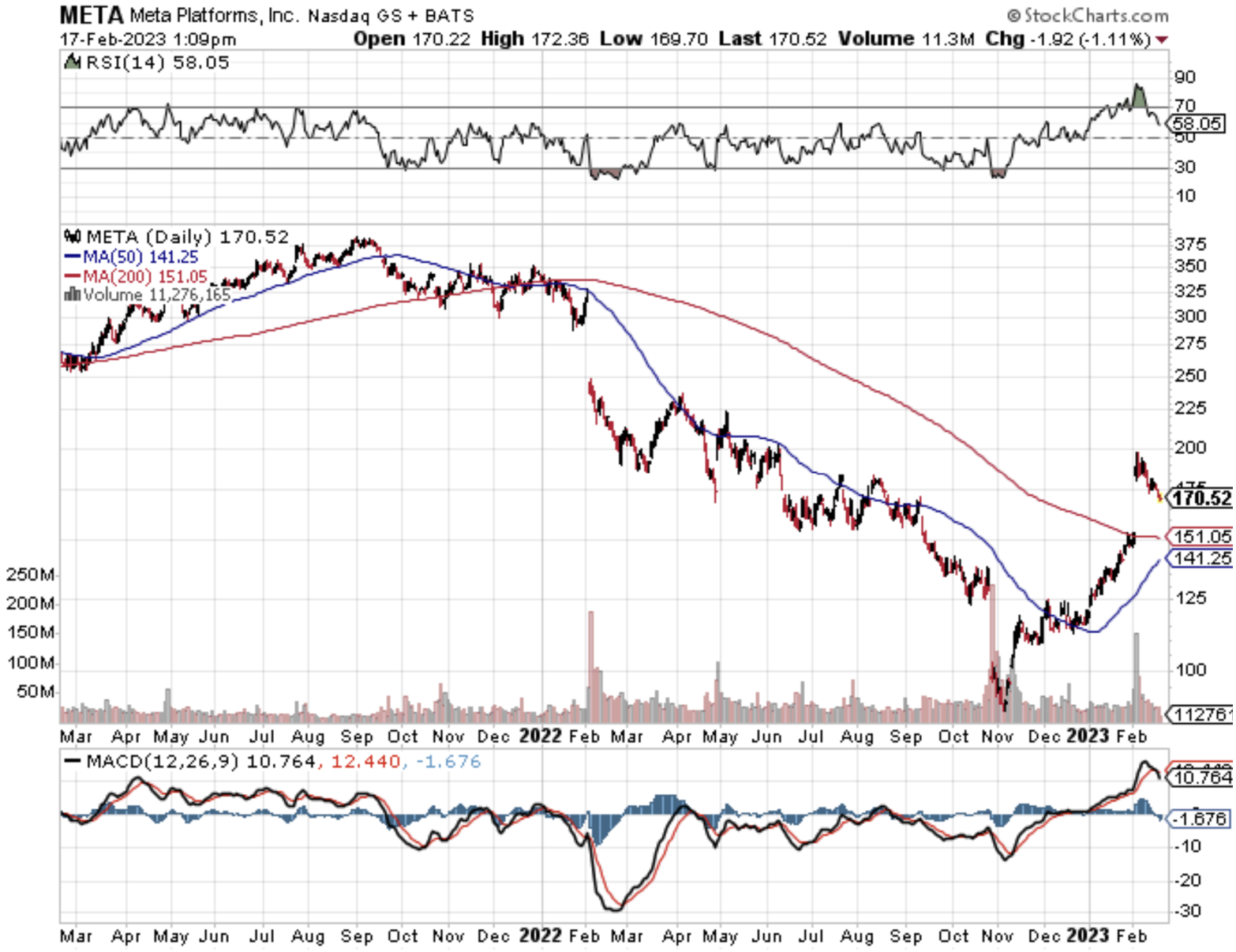Make Facebook Great Again
Well, it doesn’t have to be the 2008 version, but Meta (META) CEO Mark Zuckerberg needs to go back to his roots, because this metaverse thing isn’t going to work out.
And if it does, it will be miles into the future.
For quite a few years now, Zuckerberg has focused on his pet project as if it's his real business.
That’s when the trouble started.
He even renamed his company after his new pet project - the Metaverse.
It's a vague concept that can describe a number of things, but broadly it's the idea of people connecting through virtual worlds rather than a traditional social network.
Meta's big move into the Metaverse was a catastrophe, resulting in a mediocre experience, increasingly expensive headsets, and a stock plunge of over 60% in 2022.
Even though Meta’s stock has experienced a dead cat bounce in 2023, it doesn’t make up for the stagnation of the business model.
What should Zuck do?
He should slow down and focus on strengthening his company's core apps, Facebook, Instagram, and WhatsApp.
While Meta poured $15 billion into its Metaverse project, the other apps were noticeably neglected.
Meta should boost engagement and revenue from these apps, which have billions of users worldwide. Meanwhile, Horizon Worlds, Meta's flagship Metaverse app, only has a pitiful 200,000 monthly active users.
Even though Instagram has faced headwinds of late, it's still Meta's crown jewel. Keeping users happy with the app and laying out a plan for the years to come should be the company's top priority.
Meta should spend its time and energy monetizing that usage as much as possible without alienating users.
The company should do the same with WhatsApp, the world's most popular communication app.
The platform does not contain advertising to preserve its identity as a user-friendly service.
However, Meta has promised to use its popularity in other ways to increase revenue, including with paid features.
But instead of focusing on its proven uses, Meta is investing billions of dollars in an idea that may not pay off for five or 10 years.
Left unaddressed, a bet of this magnitude risks alienating investors and employees while they face economic challenges.
Apple (APPL) was one of the main reasons for the swan dive in ad revenue. Last year, the tech giant rolled out a privacy change for iOS, asking users if they didn't want to be tracked on other companies' apps as well. Meta responded at the time by saying that advertisers "may see an overall decline in ad performance and personalization and an increase in cost per action."
To stave off competition, Zuckerberg is attempting to invent the next future platform.
The issue I take with this pivot is that Zuck thinks it’s a lay-up, but I believe it’s something closer to a Hail Mary.
It’s rarely the incumbents who invent the next big platform, which is why Zuckerberg's metaverse vision is more suited to a VC-funded startup than a company-wide rallying cry.
Apple has also been exploring future platforms, albeit far more quietly than Meta (its own VR headset is rumored to roll out in June 2023).
Apple’s stock price has ground sideways while Meta has borne the full brunt of investor skepticism.
That hasn't stopped Zuckerberg from making his Metaverse foray into a contest between Meta and Apple, which of course takes up a lot of space.
Ultimately, the smart move here would be for Zuckerberg to take a page out of Apple's book by prioritizing the tried and tested cash cows to keep investors happy and relegate the Metaverse stuff to the dustbin of history.
The stock has doubled since October 2022 and Meta should improve on its self-labeled “year of efficiency.”
I do believe Meta shares will rise from here if they keep firing staff and simplify the platform.
They still employ over 86,000 people and I believe they can streamline down to 25,000 employees.


